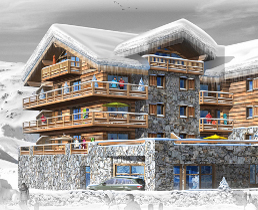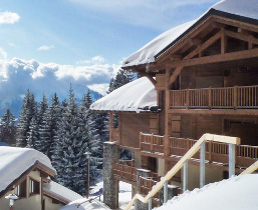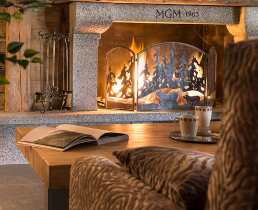Buying or selling a property in the French Alps
If you are considering buying or selling a French property, you will certainly need professional assistance as the process, while not complicated, requires attention to detail and detailed advance planning. The estate agent and notaire are key in either buying or selling but be careful to fully understand the tax and legal position.
Buying process
The role of the French notaire is to draft the pre-sale contract (compromis de vente) and incorporate any "subject to" clauses agreed by the buyer and seller such as the findings from the building survey, planning permission or the buyer securing finance. The notaire also carries out a number searches relating to the property, such as valid title. All this work is carried out prior to preparing the final sales documentation which is ultimately signed by the seller and buyer.
Selling process
If you are selling a property, it is more than likely you will use the services of an estate agent. The estate agent’s main role is to market properties on behalf of owners which can involve advertising the properties on their own websites, shop window or in portals. In return, the estate agent charges commission to the seller based on a percentage of the completion price. The rate of commission must be clearly displayed in the estate agent’s premises.
Featured Ski Chalets for Sale

Chamonix
Leaseback from €292,642 ex VAT

Tignes - Kalinda Village
From €292,642

Les Deux Alpes - Kayla
From €240,000
The notary is also responsible for transfering the proceeds of the sale to the seller and have considerable power in deciding what taxes are rightfully due to the French government, for example the added-value due on the sale of a second home in France that has been owned for less than 15 years.
The notaire’s remuneration of around 5%-7% of the sales price are one of the largest costs associated with buying a property. Most of the fees are government taxes and charges for land registry and other disbursements, which are listed in the final account that the buyer receives after completion, together with a copy of the registration documents.
Some foreign property buyers choose to employ a non-French legal adviser, in addition to the French notaire – the latter alone being responsible for overseeing the transaction. It is also possible for a buyer to appoint a second notaire to ‘act in their interest’ and this costs nothing as the two notaires have to work togeter and share the fees. The notary has expert knowledge of French property law and strong local connections together with a duty to ensure that both parties fully understand the process. This ensures that the transaction is legal, transparent and fair. A translator or interpreter may be useful, provided he or she has experience of French documents and can explain them in plain English.
Insurance
Once you have bought your vhalet or apartment, it needs to be insured. Within co-ownership buildings, insurance cover is limited to the contents of your own apartment and any consequential damage (for example if your bath overflows and floods the apartment below). Every town has a branch office of the main French insurers who can offer a number of standard policies. If you own a house and garden, coverage will be more extensive and include the building fabric and possibly a swimming pool too. French insurers are used to covering apartments or houses that are also let occasionally or permanently.
Taxation
It is not possible to cover all aspects of the taxation implications of buying and selling French property in this guide due to the personal circumstances of each individual and their own domestic tax regulations and rules. However, we provide a general overview as to some of the areas which should be considered. In all cases, we strongly recommend seeking the expert advice of a professional.
Tax to be paid by the buyer
There are various taxes to be paid by the new owner on completion of the purchase and on an on-going basis.
Real Estate Transfer Tax
The transfer of real estate in return for payment, as well as the transfer of real estate rights in return for payment is, in principle, subject to a real estate registration tax (taxe de publicité foncière) at a rate of 5.09%. This tax is computed at the fair market value of the real estate or real estate rights transferred and paid by the buyer on completion
Transfer Duty
All transfers of ownership of real estate or real estate rights are subject to a registration duty at the rate of 0.70% for the registration of the property transfer at the mortgage office (bureau des hypothèques). This duty is calculated on the market value of the property or right transferred and is paid by the buyer
Tax Fonciere
Tax Fonciere is payable annually by the property owner and is a "living" tax that pays for example, your rubbish collections.
Wealth Tax
Wealth tax is payable by French residents whose worldwide assets are valued at or above €1,300,000 and Non-French residents whose assets located in France (except financial investments in France, which are exempt) are valued at or above €1,300,000. The French Government may change these limits each year and should be checked.
The taxable worth for a year is assessed on 1 January of each year and there are adjustments made for deductible debts - this is best achieved with the assistance of your accountant or lawyer.

Other professionals
There are other professionals that you may find helpful during or after you have bought or sold your property:
Valuation Experts
Most estate agent will offer to give you an estimate of the potential sales value of your property. However, only a qualified expert immobilier can provide a formal valuation if one is required by a lender for example.
Architects
If you are planning any alterations or redecoration, you can call on the services of a French architect – obligatory for major projects, or an architect d’intérieur or interior designer. These experts can help by proposing suitable firms to carry out the work, obtain estimates, sort out planning permissions if necessary, and supervise the work through to completion. In the case of a registered architect, he/she will take responsibility for stage payments to builders and artisans as work progresses and is completed.

Flaine - Le Centaure
Leaseback from €292,642 ex VAT

Crest Voland - Les Chalets Oursons
Sale from €202,000 inc VAT

Chatel - Les Chalets d'Angèle
Leaseback from €187,291 ex VAT
On-Going Costs & Management Agencies
Larger chalets and apartments can sometimes be owned by many individuals. In these cases, it makes sense to appoint a syndic. The professional syndic de copropriété manages the property on behalf of the owners and covers property maintenance, insurance and other matters such as cleaning of the ‘common parts’ such the lifts, entrances and corridors, outside grounds and sometimes a swimming pool, in which each owner has a share of the costs based on the size of their individual property.
The syndic formulates and develops rules for the management of the property, covering matters such as external painting or permission to extend a private area – such as adding a terrace to your apartment, or more mundane matters such as keeping pets or running a business from home.
These matters are discussed at the annual general meeting of the co-owners, for which the syndic prepares an agenda and a subsequent report on the decisions taken. The syndic is also responsible for insuring the building fabric and foundations, while each owner arranges their own contents insurance.
Professional syndics are paid an annual fee from contributions by the co-owners and are also responsible the raising of additional funds that may be required for repairs and maintenance voted for at the annual general meeting. They will commission surveys, obtain estimates for works to be undertaken, and supervise its satisfactory completion.
